What are the solutions to climate change?
There are lots of ways we can help stop climate change and simultaneously protect people against rising fuel bills.
One of the most effective ways to achieve change is to push governments and companies to take urgent action.
Alongside this we can join others in our community to take action and make small but important changes to our lifestyles to reduce our personal carbon emissions.
What needs to change?
Opinion polls show that most people in the UK are worried about the climate crisis. Many feel powerless to make a difference. That’s understandable.
Wealthy governments from high emitting countries have the primary responsibility for stopping climate change. They need to make the urgently needed, systemic changes such as stopping fossil fuel production and incentivising clean energy. They also need to make it easier and cheaper for people to make climate-friendly lifestyle choices, particularly when people are reeling from the cost of living crisis.
It’s impossible to insulate your home if you can’t afford it. Or to take the train if it is more expensive than flying or driving.
Our climate change charity response focuses on climate action worldwide and those leading on the frontlines of the climate crisis.
Make your voice heard: call for climate justice now
Join Oxfam, in solidarity with people worldwide, to demand that the UK and other wealthy, high emitting government that have contributed the most to the climate crisis, urgently reduce their emissions to limit global temperature rises to no more than 1.5 degrees...
- Reduce the UK’s emissions in line with its fair share of international responsibility while ensuring that the costs and benefits (like green jobs, better health and reduced energy poverty) are shared fairly.
- Provide finance to low-income countries and communities who have contributed the least to the crisis but often suffer the worst consequences.
Paul Foster/ Oxfam
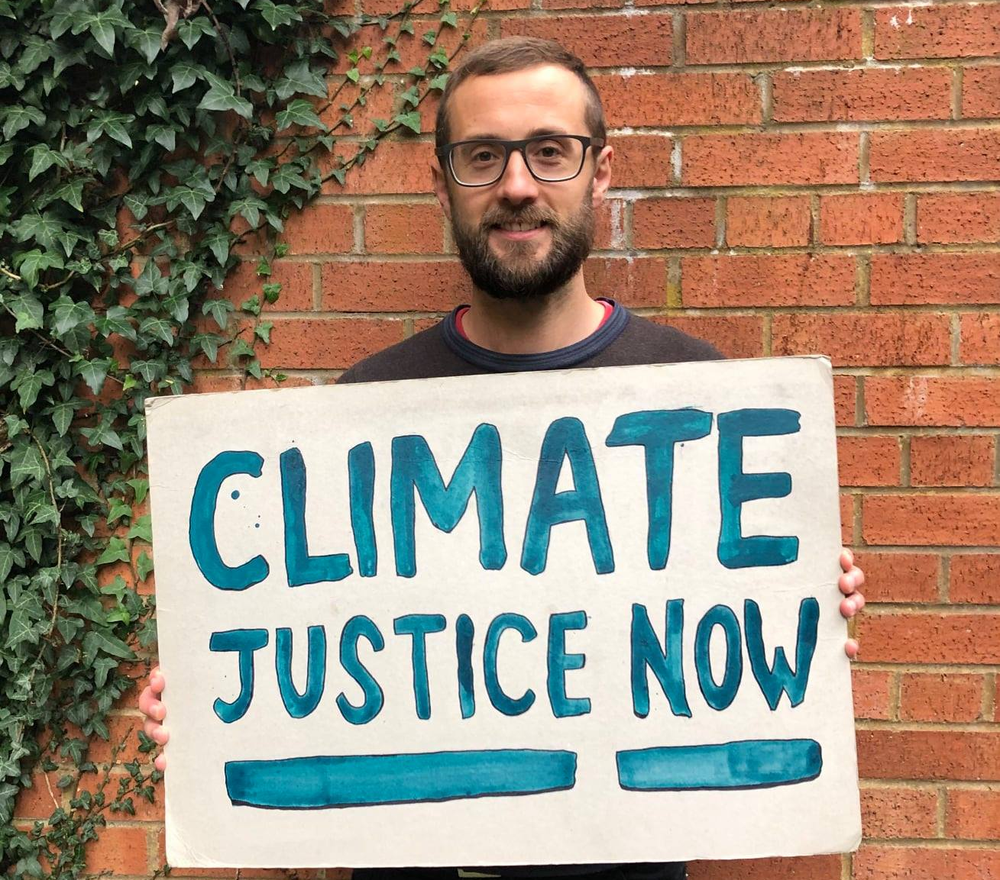
Take community action
Join with others in your to take community climate action. As well as enabling more people to reduce their emissions, community action can help generate community spirit, change people’s norms and behaviors, test and scale climate solutions, and mobilise people to campaign. For example...
Organise or take part in community initiatives
- Plant trees and protect green spaces
- Run or attend swap shops to reduce waste
- Signpost and support people access government and local financial support and advice to reduce energy use and fuel bills.
- Generate community-owned renewable energy
A portrait of climate activist Isaac in Malawi. Image: Thoko Chikondi/Oxfam
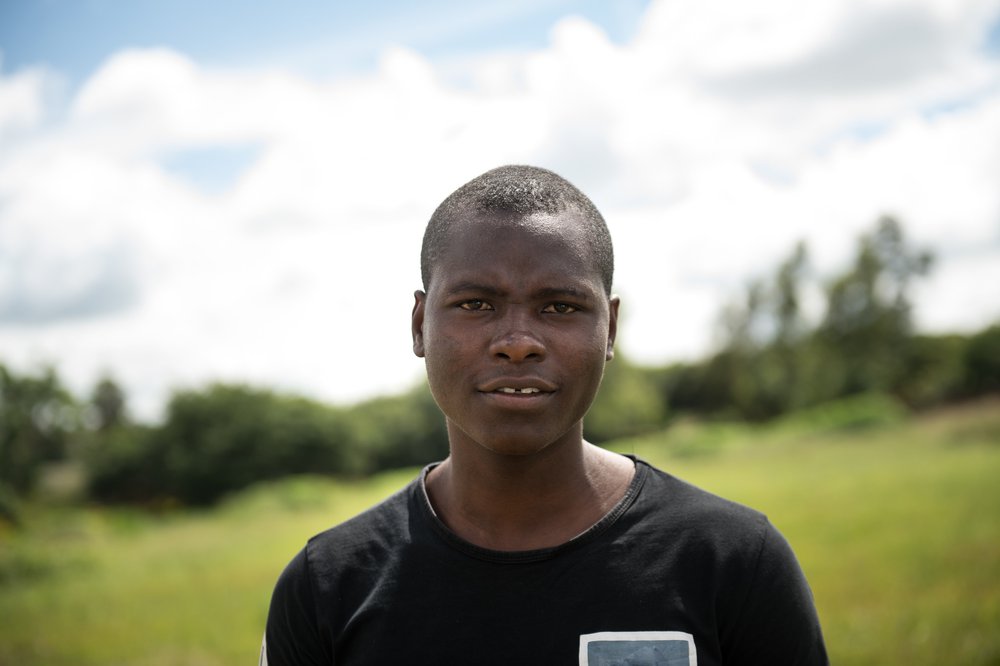
“In the UK, they are also experiencing effects of change, but countries such as mine are hit hard by droughts, flooding and changes in rainfall pattern – though [the emissions in countries like mine] remain lower than those from developed countries that use coal to power their industries.”
Isaac, Climate Activist, Malawi
Call on your local council to...
- Reduce emissions from their own buildings
- Divest their pensions funds from fossil fuels
- Electrify local buses
- Improve cycling and pedestrian lanes
- Provide financial and practical support to help people save energy at home
- Use their licensing and procurement powers to promote sustainable businesses
- Support and scale up local community climate action
Ask local supermarkets to...
- Prominently display and provide affordable offers on sustainable, healthy, plant-based food
- Reduce and label carbon intensive, unhealthy processed food
- Provide cycling racks, put solar panels on their buildings and reduce packaging
Take individual action
The carbon footprint of an average person in a wealthy country like Britain is much bigger than the footprints of people in many low-income countries. But there are lots of no or low cost ways to reduce our personal carbon emissions which also help protect against rising fuel bills, and improve wellbeing and health. Evidence shows that individuals can reduce their personal carbon emissions by 10% or more through simple behaviour changes alone. Such changes include to...
Eat less meat
- Livestock production generates far more carbon emissions than growing plants such as vegetables legumes or cereals. Reducing meat and eating more plant-based foods will help cut carbon emissions, and is also good for your health and wallet.
- There are also loads of delicious meat-free recipes to try, as well as meat-based substitutes. Consider switching from meat to plant-based diets for pets too.
- If you have a balcony or garden try growing some vegetables.
- Hardy plants like tomatoes can grow even in small spaces with enough sunlight and water.
- You could also recycle containers to plant vertical gardens.
Use public transport, walk or cycle
Flying and driving emit more carbon emissions than public transport. Walking and cycling emit none!
- Whenever possible use public transport, walk or cycle rather than fly or drive.
- Walking and cycling is good for health and saves money.
- Check out cycling routes to work, get bike training and find out where to buy cheap second hand bikes.
Oxfam
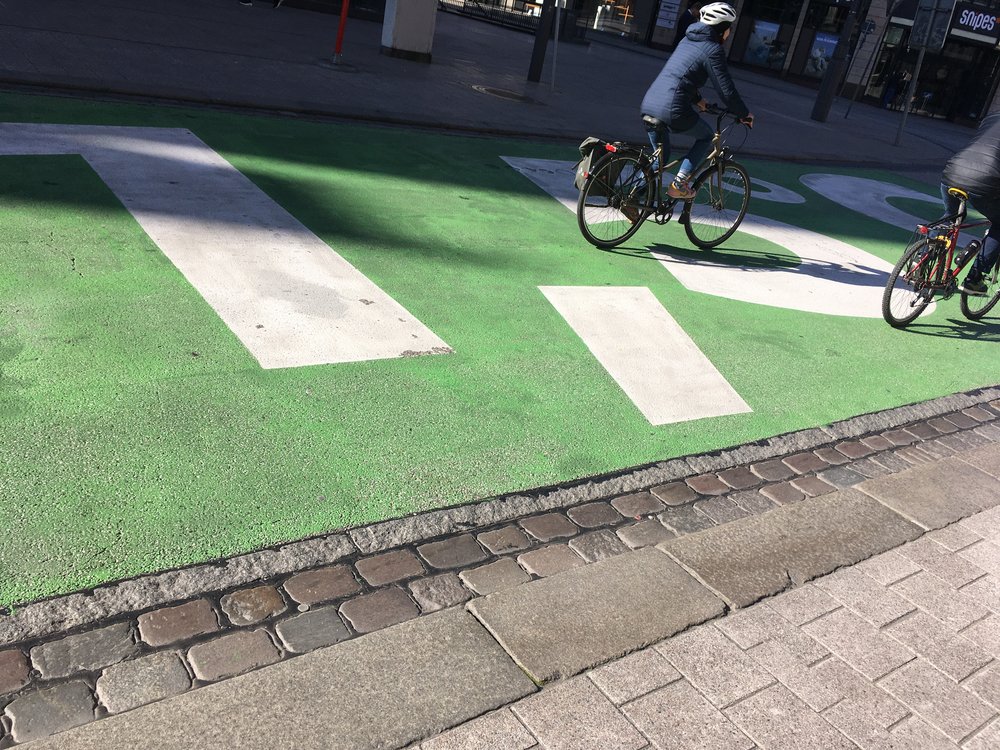
Reduce your energy use and emissions at home
Simple behaviour changes can reduce your home carbon emissions from home and protect you from rising fuel bills for example:
- Don’t overheat your home - try to keep your home heated to a maximum of between 18-21 degrees C. But keep yourself warm enough too.
- Wash your clothes at 30 degrees - rather than at higher temperatures. Your clothes will still be clean.
- Don’t overfill the kettle: only boil what you need.
- Use a washing line rather than a tumble dryer to dry clothes. If you have space dry your clothes outside when you can. If it’s warm enough get an inside clothes drying rack and put it near an open window to let moisture escape but close the door to prevent condensation.
- Change to energy-efficient light bulbs. Buy and use LED light bulbs which use minimal amounts of energy compared with non-energy efficient bulbs.
Buy less stuff
Where possible try to buy less stuff. The goods and services we buy use fossil fuels to produce and generate carbon emissions.
- Choose second-hand goods, reuse, repair and recycle.
- As well as using charity shops some big retailers may repair or recycle items.
- Also look out for local community bring and takes and repair cafes
Shutterstock
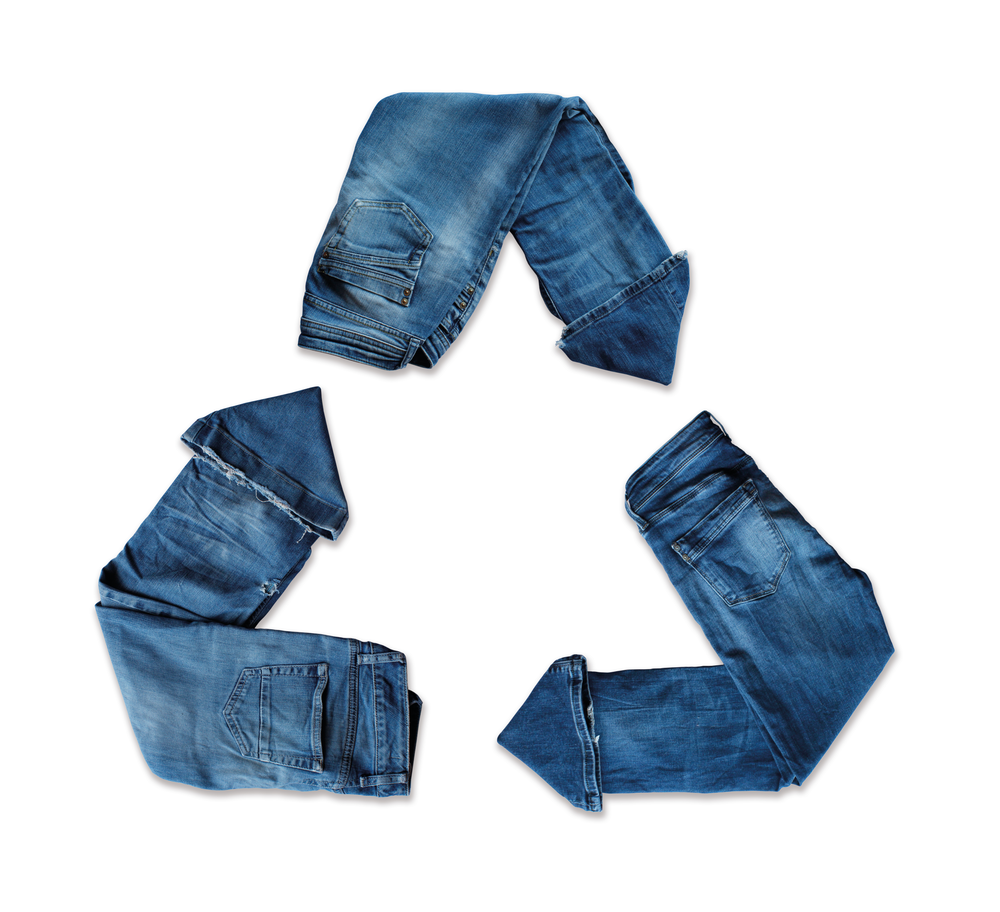
Switch to sustainable savings, investments and pensions
If you have savings, investments and/or pensions try switching them to sustainable and ethical funds. (See Make My Money Matter). Let existing account providers know why you are leaving. Check Ethex for clean investment opportunities starting at £50.
Stop your home wasting energy
Many homes lose heat through poorly insulated walls and roofs.
- Topping up the insulation in your home and installing secondary or double glazing can simultaneously reduce carbon emissions, make your energy bills cheaper and help keep your home warmer.
- Cheaper options include hanging thick curtains in front of windows and laying draft excluders along the floor in front of doors.
- Charity shops can be a great place to find good quality curtains that may be cheaper than new and more sustainable too.
Power your home with clean, renewable energy
Switch to an energy company that uses renewable energy sources to power your home (instead of fossil fuels like gas) with a renewable energy tariff in your home or business or install solar panels on your roof to reduce your home carbon emission and your fuel bills.
The high price of energy now means that the payback time for buying solar panels is much shorter than it was.
Take action to tackle climate change
- Donate to Oxfam to help support communities to tackle climate change
- Join communities around the world calling for climate justice - Add your voice now.
Ahmad is a date farmer in the Jordan Valley. He manages a date plantation and takes care of a new solar water system installed by Oxfam and a local partner. Photo: Kieran Doherty/Oxfam
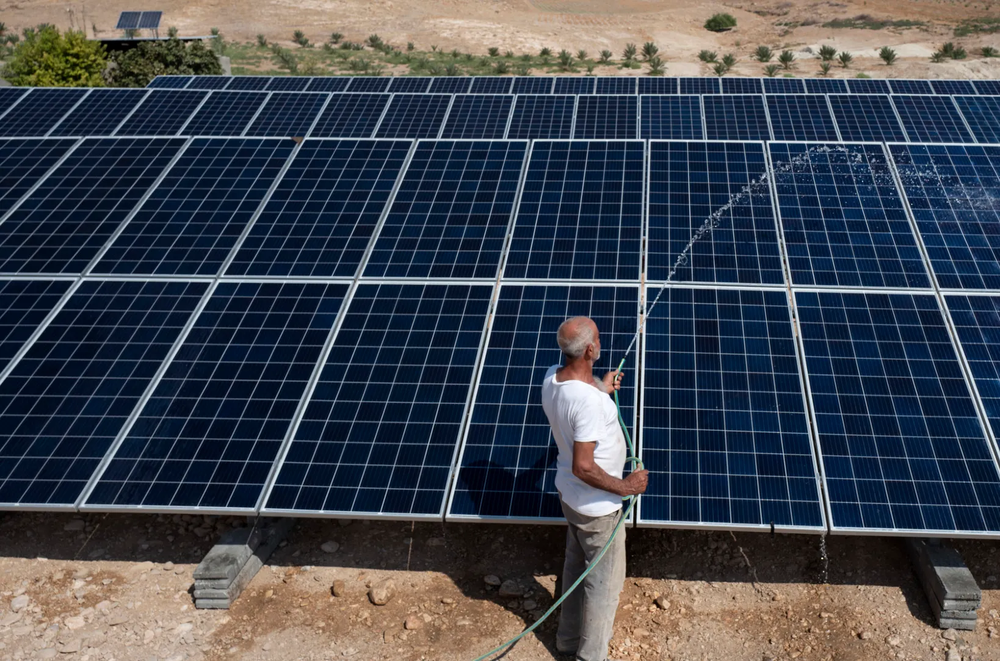
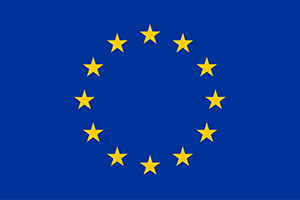
The photos of climate activist Isaac in Malawi were taken as part of a project funded by the European Union.
More posts like this
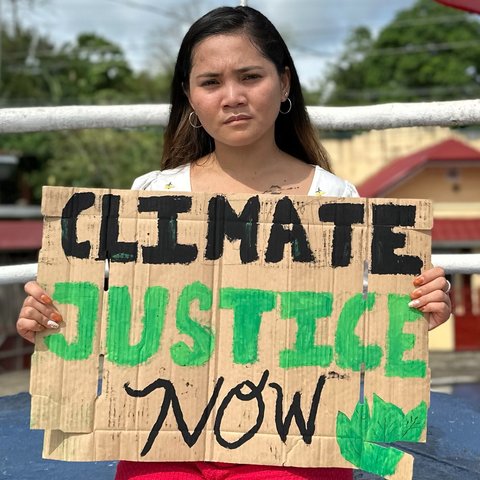
Join communities around the world calling for climate justice.
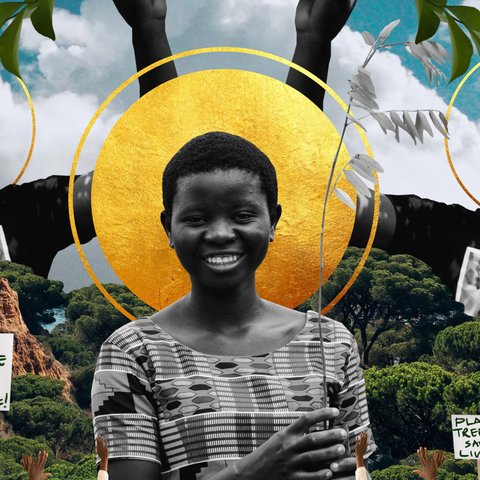
Facts about droughts: The people who have done the least to cause the climate crisis are suffering the most. Communities are calling for system change not climate change.

The climate crisis isn't in the future, it's here now. Pushing people deeper into poverty. Polluters must pay for the damage they've caused. So all of us can thrive.
